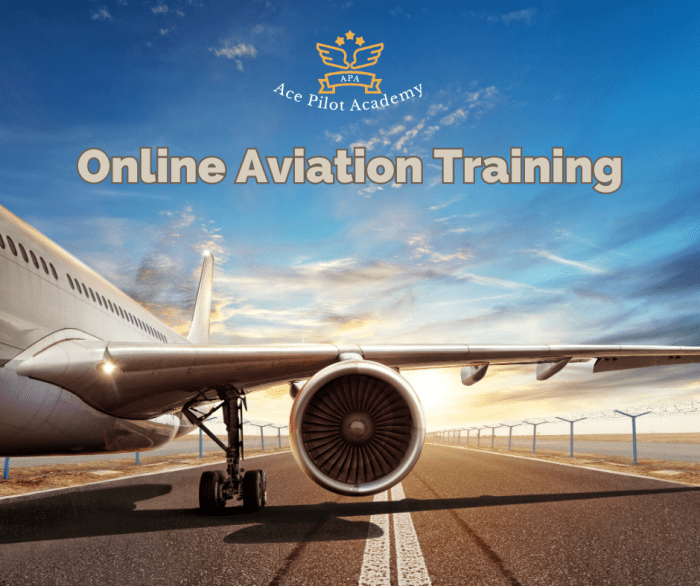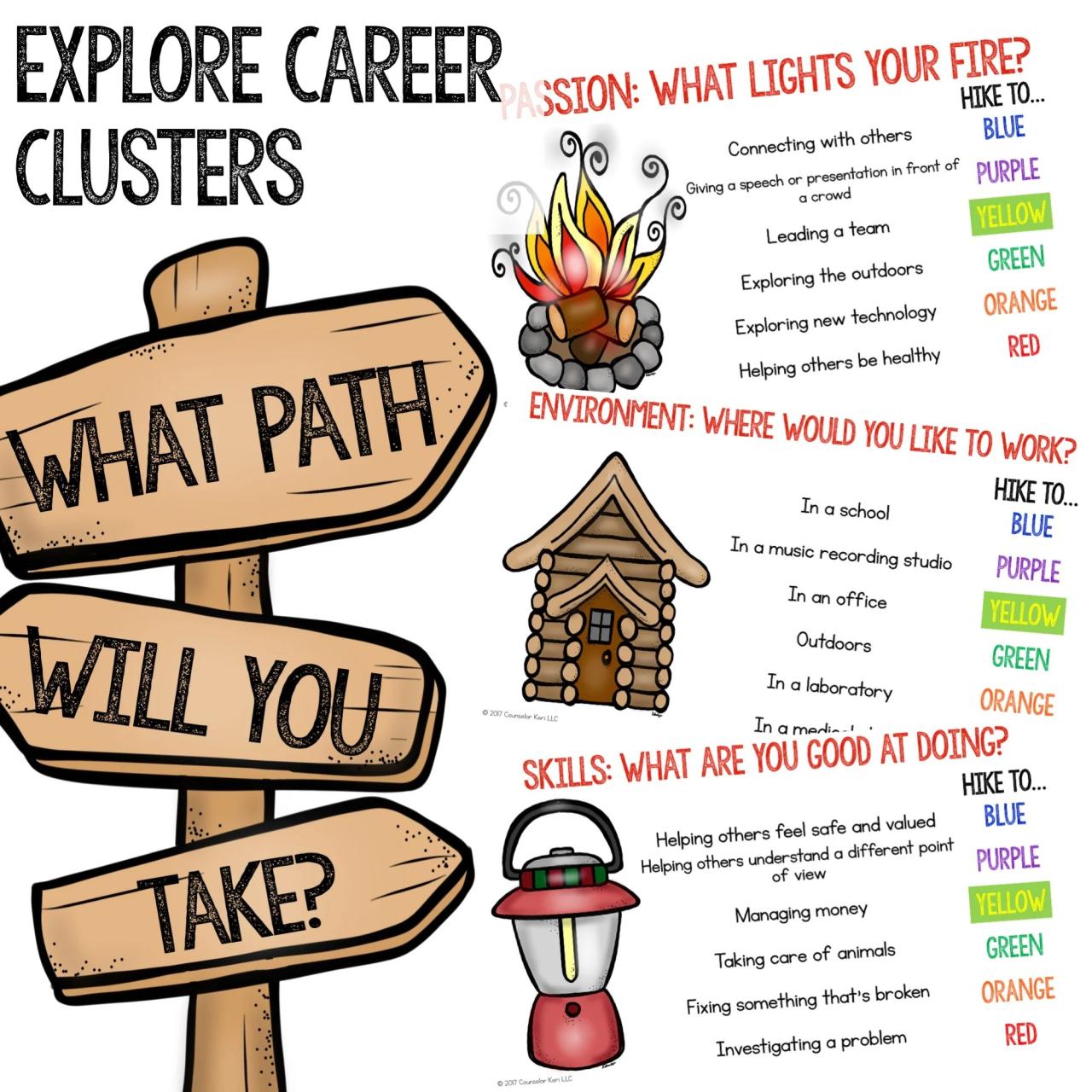
As Online education for aviation takes center stage, this opening passage beckons readers into a world crafted with good knowledge, ensuring a reading experience that is both absorbing and distinctly original.
In today’s fast-paced world, the aviation industry is constantly evolving, and professionals need to stay ahead. Online education for aviation provides a flexible and convenient way for individuals to enhance their skills and knowledge in this dynamic field. Let’s explore the benefits, effectiveness, and examples of online platforms offering aviation-related courses.
Online Education for Aviation
Online education for aviation professionals offers numerous benefits, including flexibility in learning schedules, cost-effectiveness, and accessibility to a wide range of specialized courses. Aviation enthusiasts can now pursue their passion for flying and aircraft technology from anywhere in the world with an internet connection.
Benefits of Online Education for Aviation Professionals
- Flexibility: Online aviation courses allow professionals to study at their own pace and schedule, making it easier to balance work, family, and education.
- Cost-Effectiveness: Online courses generally cost less than traditional classroom learning, saving students money on travel, accommodation, and course materials.
- Accessibility: Online platforms offer a variety of aviation-related courses, ranging from pilot training and aircraft maintenance to air traffic control and aviation management.
Effectiveness of Online Aviation Courses vs. Traditional Classroom Learning
Online aviation courses have proven to be just as effective as traditional classroom learning, thanks to advancements in technology and interactive learning tools. Students can engage with course materials through videos, simulations, and discussion forums, enhancing their understanding of complex aviation concepts.
Online Platforms Offering Aviation-Related Courses
- Udemy: Udemy offers a wide range of aviation courses, including pilot training, aviation safety, and aircraft maintenance.
- Coursera: Coursera partners with universities and institutions to provide online aviation courses on topics such as aviation law, air transportation systems, and aviation management.
- edX: edX offers courses from top universities worldwide, covering areas like aviation security, airport operations, and aviation safety management.
Engineering Education

Engineering education plays a crucial role in the field of aviation studies, providing the necessary knowledge and skills to ensure the safety and efficiency of aircraft operations. Let’s delve into how engineering principles are integrated into aviation training and the significance of engineering education in aircraft design and maintenance.
Integration of Engineering Principles in Aviation Studies
Engineering principles are integrated into aviation studies to provide students with a comprehensive understanding of the technical aspects involved in aircraft operation. This includes concepts such as aerodynamics, propulsion systems, materials science, and structural design. By equipping students with a solid foundation in engineering principles, aviation professionals can make informed decisions and solve complex problems in the field.
- Understanding aerodynamics is essential for designing aircraft that can achieve optimal performance and efficiency.
- Knowledge of propulsion systems helps in selecting the right engines and power sources for different types of aircraft.
- Mastery of materials science ensures that aircraft components are durable, lightweight, and resistant to wear and tear.
- Expertise in structural design is crucial for building aircraft that can withstand the forces and stresses encountered during flight.
Engineering education in aviation studies is like the wings of a plane
essential for lifting off and soaring to new heights.
Role of Engineering Education in Aircraft Design and Maintenance
Engineering education is fundamental in aircraft design and maintenance, as it provides the necessary knowledge and skills to create safe and efficient aircraft. Designing an aircraft involves a deep understanding of aerodynamics, structural integrity, and system integration, all of which are taught in engineering programs.
Additionally, maintenance of aircraft requires expertise in troubleshooting, repair, and inspection, which are also covered in engineering courses.
- Engineers use their knowledge of aerodynamics to design aircraft that can achieve lift and minimize drag, enhancing fuel efficiency.
- Structural engineers ensure that aircraft components are strong enough to withstand the forces experienced during flight, preventing catastrophic failures.
- Maintenance engineers rely on their training to diagnose and fix issues with aircraft systems, ensuring the safety of passengers and crew.
Educational Resources
Online aviation education offers a wide range of educational resources to support students in their learning journey. These resources play a crucial role in enhancing the quality of aviation training and providing students with a comprehensive understanding of the subject matter.
Key Online Resources for Aviation Education
- Interactive simulations: Online aviation courses often include interactive simulations that allow students to practice real-life scenarios in a virtual environment. These simulations help students develop practical skills and gain hands-on experience.
- Video lectures: Many online aviation courses incorporate video lectures from industry experts, providing students with valuable insights and perspectives on different aviation topics.
- Online forums and discussion boards: These platforms enable students to engage with instructors and peers, ask questions, and share knowledge and experiences. This collaborative learning approach fosters a sense of community and enhances the overall learning experience.
- E-books and online textbooks: Digital textbooks offer students easy access to a wealth of information, allowing them to study at their own pace and refer back to key concepts whenever needed.
Types of Educational Materials in Online Aviation Courses
- Presentations and slideshows: Visual aids such as presentations and slideshows help break down complex information into digestible chunks, making it easier for students to understand and retain key concepts.
- Quizzes and assessments: Regular quizzes and assessments help students gauge their understanding of the material and track their progress throughout the course.
- Case studies and real-world examples: Incorporating case studies and real-world examples into online aviation courses helps students apply theoretical knowledge to practical situations, enhancing their critical thinking and problem-solving skills.
Contribution of Educational Resources to Aviation Training Quality
- Enhanced engagement: Interactive educational resources keep students engaged and motivated, leading to better retention of information and improved learning outcomes.
- Flexibility and accessibility: Online resources provide students with the flexibility to study at their own pace and access course materials from anywhere, making aviation education more accessible to a wider audience.
- Comprehensive learning experience: A variety of educational resources cater to different learning styles and preferences, ensuring that students receive a well-rounded education that meets their individual needs.
Educator Development
Continuous professional development for aviation educators is crucial to ensure that they are equipped with the latest knowledge and teaching techniques. This ongoing learning process helps educators stay current in their field and maintain high standards of teaching excellence.
Importance of Educator Development
- Engage in regular training workshops and conferences to stay updated on industry trends and best practices.
- Seek mentorship and coaching from experienced educators to enhance teaching skills.
- Utilize technology tools and resources to create interactive and engaging learning experiences for students.
- Participate in research projects and publications to contribute to the advancement of aviation education.
Strategies for Enhancing Teaching Skills
- Implement active learning techniques such as case studies, simulations, and group projects to promote student engagement.
- Encourage critical thinking and problem-solving skills through real-world aviation scenarios and challenges.
- Provide constructive feedback and support to students to help them improve their performance and achieve their learning goals.
- Collaborate with industry partners and professionals to bring real-world insights and experiences into the classroom.
Impact of Educator Development on Aviation Education Quality
- Enhanced teaching skills lead to improved student outcomes and performance in aviation education programs.
- Continuous professional development fosters a culture of innovation and excellence within the aviation education community.
- Effective educators inspire and motivate students to pursue careers in aviation and contribute to the growth of the industry.
- Investing in educator development ultimately elevates the overall quality and reputation of aviation education institutions.
Educational Technology

Educational technology plays a crucial role in delivering online aviation courses by providing interactive and engaging learning experiences for students. By incorporating innovative technologies, educators can enhance the learning process and make complex aviation concepts more accessible to learners.
Role of Educational Technology in Aviation Education
- Virtual Reality (VR) and Augmented Reality (AR) simulations allow students to experience realistic flight scenarios and practice decision-making skills in a safe environment.
- Flight simulators provide hands-on training for pilots and enable them to practice flying techniques without the need for a physical aircraft.
- Online collaboration tools facilitate communication between instructors and students, creating a dynamic learning environment.
Innovative Technologies in Aviation Education
- Drone technology is used for aerial photography and mapping exercises, giving students practical experience in operating unmanned aerial vehicles.
- Mobile applications provide access to study materials, quizzes, and interactive lessons, allowing students to learn on the go.
- Artificial Intelligence (AI) algorithms can analyze student performance data to personalize learning experiences and provide targeted feedback.
Future Trends of Educational Technology in Aviation
- Adaptive learning platforms will become more prevalent, offering customized learning paths based on individual student needs and preferences.
- Blockchain technology may be used to verify credentials and certifications in the aviation industry, ensuring the authenticity of pilot qualifications.
- Remote proctoring solutions will enhance the security of online exams, preventing cheating and ensuring the integrity of assessment processes.
Closing Summary
In conclusion, online education for aviation opens up a realm of possibilities for professionals looking to soar higher in their careers. By embracing the convenience and accessibility of online learning, individuals can stay current with industry trends and advance their expertise in this high-flying field.



